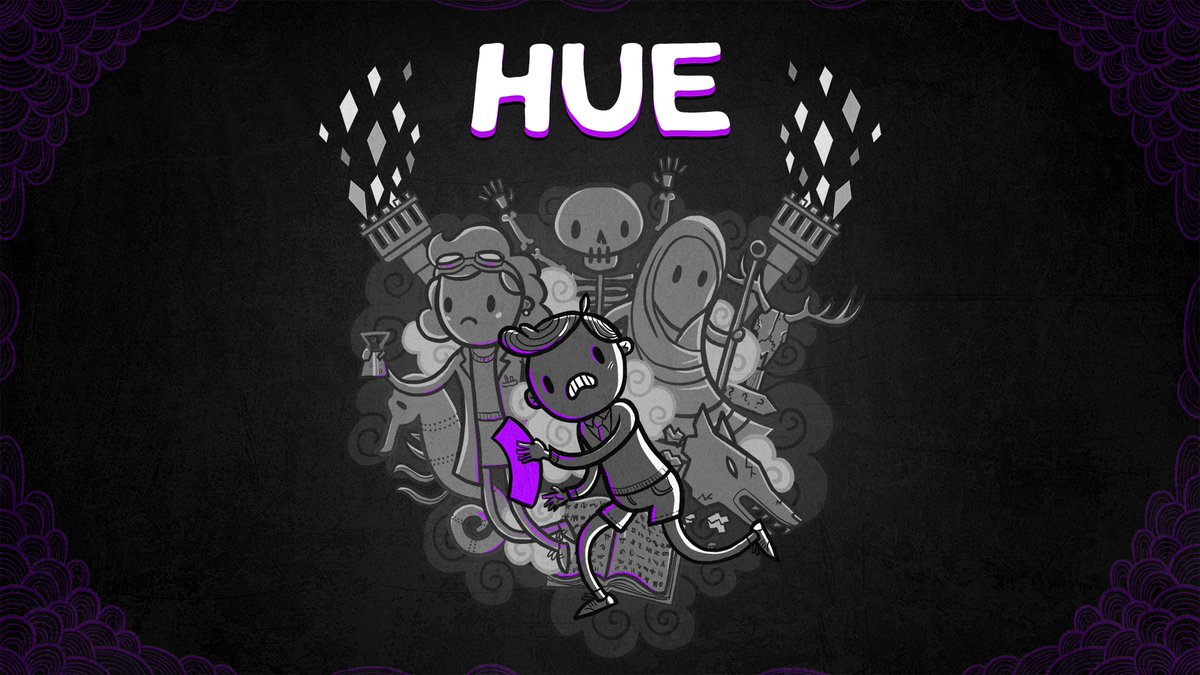
Review: Hue
Posted by Curtis H on September 1st, 2016 | 0 Comments | Tags: Hue
In Hue’s world, everyone sees things in gray-scale, everyone except for his mother that is. But when she goes missing it’s up to Hue to embark on a journey to solve the mysterious circumstances around his mother’s research as well as her disappearance. In many ways the story told throughout Hue’s journey is one of a celebration of color, uncovering more and more of your mother’s research only helps to solidify that. The dedication that drives Hue’s mom forward in her research is the desire to see things in all new ways and to view the world in colors never seen before. It’s a tale that touches upon color perception just as much as it does the love of a mother for her son, and what holds it all together is a really interesting and pretty clever string of color-based puzzles.
Progression through Hue’s world is dependent upon navigating past a variety of different obstacles, and to do so, you’ll need to use your color wheel to manipulate the world’s background color. Let’s say that you enter a room with a giant red block that’s directly in the way of the exit. There’s no way to push the block out of the way and you can’t jump over it, but you can change the room’s background color to red which will in turn cause the giant red block to blend in with the background – essentially vanishing before your eyes. With this simple concept Hue presents all sorts of different puzzles and mechanics that continue to build upon each other, eventually leading to some pretty difficult conundrum’s later in the game. At one point in the story the narrator speaks about whether or not things actually exist if you can’t really see them, and nearly every puzzle in Hue revolves around that simple premise.
With a few exceptions, most puzzles are presented room-by-room with a simple ‘find the key and reach the door’ objective. From there Hue messes with your perception of color and challenges you to think logically about what kinds of things would happen if you were to alter the color of any given room. We’ve certainly seen a bevy of indie puzzle platformers over the years, but Hue genuinely felt like a breath of fresh air to me. I really loved the singular focus on color, the way it’s tied into the story, and the way in which the game forces you to really think things through. Unfortunately, the run up to the end of the game also brought up its own set of frustrations. A handful of puzzles require precise movements and a bit of timing to correctly navigate hazards which can make the act of solving them far more tedious than they are fun. There’s also the matter of each puzzle completely resetting if you die in the room which, as the later puzzles get longer and a bit more involved, makes redoing the solution a bit of a nuisance as well. Neither of these things take much away from the game overall, but they certainly stuck out in what is otherwise a really enjoyable game.
It should be noted, what with its heavy focus on color perception, that Hue offers a color blind mode. With this mode turned on every color will also be assigned its own shape that should help anyone who is color blind easily tell colors apart. I’m not color blind myself, so I can’t speak to how much this option helps, but it’s really great to see developers include options like this. I’d also just recommend keeping the option on anyways because yellow and orange can be a bit hard to tell apart at times. (The video above also shows the game with the color blind option turned on at all times.)
For a game that’s so heavily focused on how you perceive things visually, I think it’s also important to note that the audio department isn’t lacking in the least. Your journey through Hue is accompanied by a piano heavy soundtrack and voice over narration by Anna Acton and Matthew Wade, all of which are excellent in their own ways. Anna Acton specifically, who provides the voice of Hue’s mother, is great and really sells the love expressed in each letter written to her son, Hue. I mention this, because I didn’t expect Hue to have any sort of narration, but it’s inclusion makes the game far better for it.
There are collectibles hidden throughout the world in Hue, but they’re not necessarily something that I feel motivated to go back to get. Hue is a really interesting puzzle game and its focus on color perception makes for something that feels a bit more unique; bonus points that it logically ties in with the story. With just a few exceptions, I found Hue to be quite entertaining, challenging enough to feel rewarding, and not too long so that it never overstayed its welcome.
A copy of this game was provided by the publisher for review purposes. For more info on our review policy click here.
General Info
- Developer: Fiddlesticks Games
- Publisher: Curve Digital
- Platforms: PS4 (Reviewed)
- Release Date: August 2016
Score:
What I Like:
- Clever use of colors and perception to create some interesting and challenging puzzles
- Color blind mode
- Soundtrack and voice over add a lot to the game
What I Dislike:
- Some later puzzles become a bit more tedious than fun to solve




